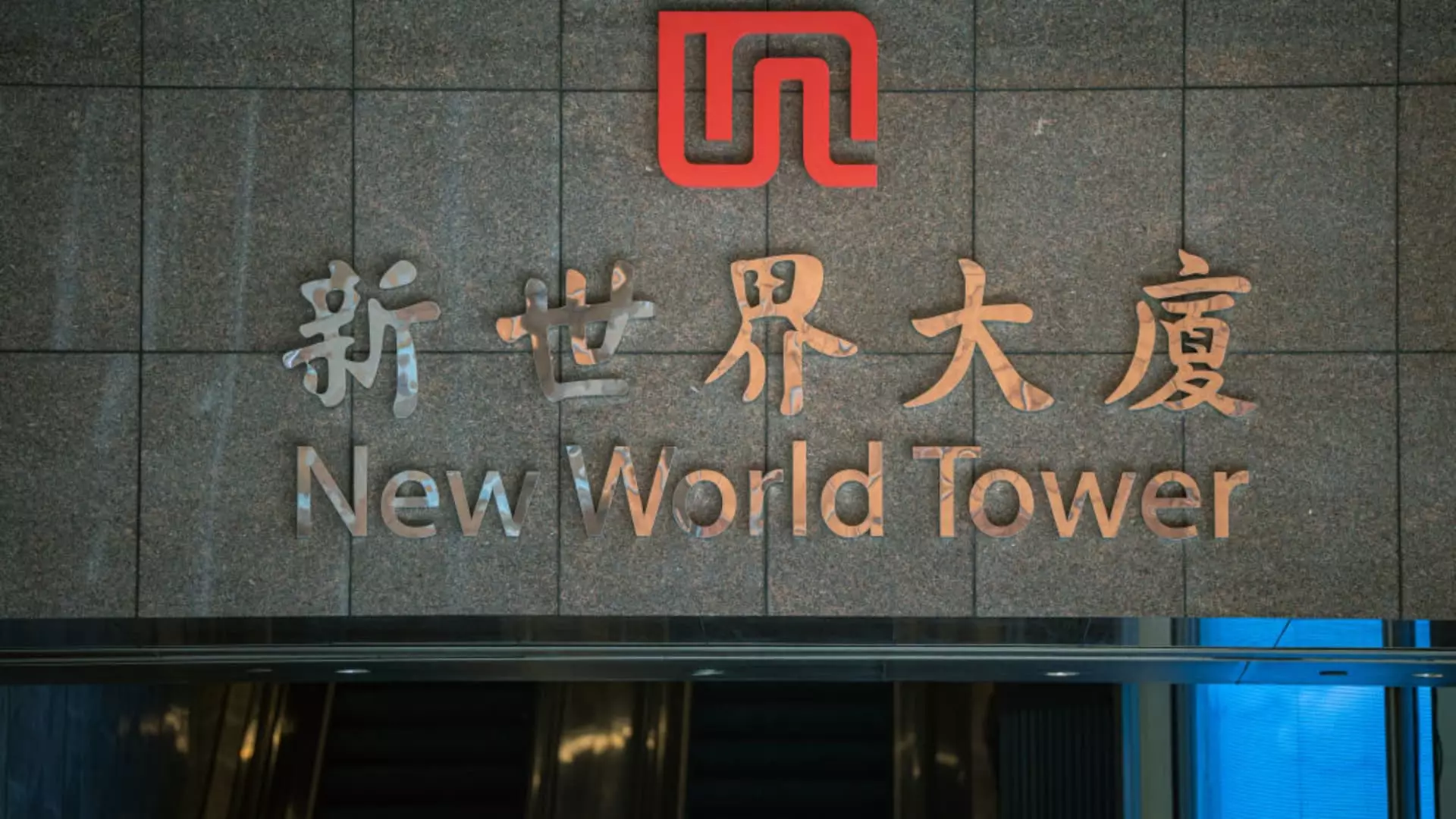Recent events surrounding Hong Kong’s New World Development have provoked significant interest in the dynamics of corporate governance and market resilience. A sudden surge in share prices—up by 23%—followed the resignation of Adrian Cheng, a key figure within the founding family of the development company. Such an abrupt shift in corporate hierarchy, particularly in a family-owned conglomerate, may raise eyebrows and provoke critical analysis. The decision to temporarily halt trading amid these announcements underscores the volatile nature of investor sentiment in the wake of leadership transitions. Eric Ma Siu-Cheung, the newly appointed Chief Operating Officer, now assumes the CEO role, marking a noteworthy transition towards greater professionalism over familial loyalty in a sector often criticized for entrenched familial power structures.
New World Development’s recent difficulties reveal an uncomfortable truth about the interactions between governance practices and business outcomes. The company is forecasting substantial losses attributed to shareholders, expected to reach between HK$19 billion (approximately $2.4 billion) and HK$20 billion (around $2.6 billion) for the fiscal year ending in June. Declining sales, impairments, and rising investment losses indicate systemic issues exacerbated by high levels of debt. The market’s reaction to Cheng’s resignation could signal a belief that a shift in leadership may enhance operational effectiveness and restore stakeholder confidence. Critics like Alicia Garcia-Herrero have pointed out that the reliance on familial ties can hinder effective management, particularly during economic downturns.
The backdrop of New World Development’s repositioning is crucial. The company is not alone in its financial struggles; the entire property sector in both Hong Kong and mainland China is facing significant challenges. Economic pressures, characterized by stagnant sales and high debt, have necessitated intervention from the Chinese government. Recently announced monetary and fiscal stimulus measures from the central bank have sparked a rally in Hong Kong’s equity market, suggesting that external factors, alongside internal leadership changes, can collectively influence corporate performance. It’s essential to recognize how the political and economic landscape serves as a dual-edged sword for these firms—sometimes uplifting them, and at other times exposing their vulnerabilities.
As New World Development navigates the complexities of the current marketplace, the understanding of governance in family-owned enterprises must evolve. The appointment of a non-family member to lead at such a pivotal time indicates a potential shift towards more meritocratic management practices in an industry often dominated by hereditary leadership. While this change brings hopeful prospects for better oversight and strategic direction, it remains to be seen whether this can sufficiently resolve the deeper issues that have left companies like New World Development financially exposed.
The situation surrounding New World Development serves as a microcosm of broader trends transcending sectors and borders. It raises key questions about the need for effective governance structures in family-run businesses, especially during economically turbulent times. The evidence suggests a careful balancing act between tradition and the necessity for modernization, as corporate leaders and investors alike search for stability in a rapidly changing financial landscape.

